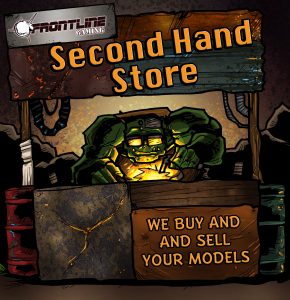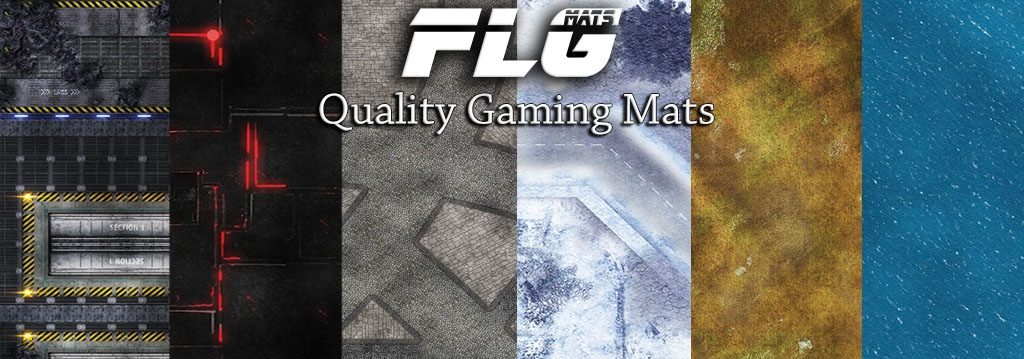
Hello all,
Apologies for the delay in this next article. Life is busier for me in the beginning of the year with work and possible return to graduate school.
In this series we have been examining the hypothetical situation of Games Workshop going “mainstream” and various routes it could take. In the previous articles we examined Games Workshop’s gaming products launching it into the national consciousness, today we will examine their IP doing the same. If you missed the earlier sections you can read them here:

Definition:
When I speak about Games Workshop’s IP I am referring to the expanded universe and setting of the Age of Sigmar (including the old world Warhammer) and/or the Warhammer 40k games. These can include the products directly made By Black Library, partnered content like the Total War game or a hypothetical TV show, even fan made content such as the Astartes shorts.
Similar Examples:
Other examples of IP’s that have spawned the success of physical games range from the Pokemon Universe, to Yu-Gi-Oh to Lord of the Rings and more. For some there is an anime that supports the trading card games and encourages people to buy in. For the tabletop games, such as The Lord of The Rings game produced by Games workshop or the Song of Ice and Fire game, the wider setting allows people to play a role in it’s events or write their own corner of the narrative. In many ways this route is the more common one for a fictional setting to take as mainstream success usually spawns spinoff games and merchandise. While not all of these games are similar in quality (with many examples of lazy cash grabs abounding) they can create a durable legacy.
Strengths

One of the pivotal strengths of the various settings is their breadth. As a very human-centered setting (more so in 40k then in AoS) the universes are wide enough to provide an array of stories and experiences from many different perspectives. A perfect example of this are the Horus Heresy novels which expand on current lore by providing multiple viewpoints of the events from the eyes of humans, Eldar, techpriests, Space Marines and more. Additionally, the grimness of the setting allows it to ground its characters and provide meaningful struggles for them to overcome and establish a sense of relatability. The wideness of the setting also creates a very inviting place to imagine oneself visiting, while perhaps not in the same way as the Harry Potter or Star Wars, the setting is replete with opportunities to have your own mini stories within the grander narrative. Furthermore, the setting is immersive. With many years of lore for the 40k universe (and an expanding story for AoS) there is a sense of history and depth to the setting. Countless characters have risen from obscurity, struggled into greatness and have fallen in ignominy eons before the current setting and there are many interesting points of history to explore and experiment with.
Another great strength of growing this way is that it requires a much lower level of commitment from your average individual. Rather then having to spend hundreds of dollars on an army, finding a place and group to play with etc. these stories allow people to enjoy the world by spending just a few dollars on a book or audio drama (or even for free if they have access to it via their library. Finally Games Workshop is well poised to grow in this area as they have a long history of producing works of fiction for their fans. They have cultivated a group of authors and a distribution network that will make future expansion much easier.
Weaknesses:

One of the weakness of the 40k universe stems from its creation as a satirized setting. Developed in the Thatcher-years in the UK much of the nuance and humor from the early years has worn down. This creates a particular problem as elements of this setting can easily be re-purposed to fit the political agendas of various groups. Given how sensitive the current environment is towards depictions of fascism, fanatical cults, and xenophobia it may be difficult for Games Workshop to keep its IP from being hijacked. For Age of Sigmar, it has been very successful in its attempts to break from most fantasy tropes. However, given the very high fantasy setting ,audiences may struggle to relate to the characters. The expansive universe can also be a weakness as the Warcraft Film can attest. If you spend too much time explaining every detail of the world you will confuse your viewers and the story will suffer (no offense if you like that film, and it did make a lot of money, but I feel it was a wasted opportunity). Thus it is important to find ways to make the lore easily digestible or simplifiable,
Another weakness can be found in how the company seeks to market itself. As a games company, people expect that their products are aimed at a younger audience. However, much of their older material is more focused on adults. Maintaining this balance can be precarious as it is difficult to try to be all things to everyone and end up appealing to no one.
Conclusion :
Overall I believe the strengths greatly exceed the weaknesses for this approach. Many gamers have been drawn to the Age of Sigmar or Warhammer 40k universe simply through the engaging stories that they could tell. In our next section I will review the opportunities and threats facing this approach and summarize the series as a whole.
And remember, Frontline Gaming sells gaming products at a discount, every day in their webcart!




This series of articles has been very interesting, thanks a lot for sharing your thoughts!
Just wanted to chip in with my experience, which I find maybe slightly contradicts the strenghts/weaknesses points regarding the IP. A bit of background: I was never too much into geeky stuff and stumbled on 40k pretty randomly a couple years ago, and had since seen some other people with similar (that is, no) background do the same. So maybe I’m one of the people whose introduction to 40k is a signifier of its going mainstream? Not sure though.
Anyway from what I’ve seen, ordinary folk with little prior exposure to the geeky* stuff going into 40k actually tend to enjoy the more absurd, over the top and humorous parts of the setting, satire included (though it mostly goes over most people’s heads since its dated, as you’ve pointed out). On the contrary, the depth of the setting panders to the more intense crowd. For an outsider 40k is ridiculous, even in its modern iteration that tries to shy away from divisive and/or problematic stuff and be grand, like the big IPs (Marvel, DC, Harry Potter etc.). As for the books, almost everyone I talk to agrees that 40k books are bad literature and they read them either because they’re too far gone down the 40k consumerism rabbit hole, or for the same reasons I did (peer pressure** or trying to figure out what it’s all about).
Okay, so the point I’m trying to make is that casuals aren’t too much into into the wider setting. The books and the IP (like the upcoming TV-shows and cartoons) are exactly for the people who are already absorbed and hooked, because the works set in the universe are, unfortunatelly kinda shallow. This day and age, to try and make 40k both relatable for an average person and successful would take some heavy social commentary (like the early 40k, funnily enough) combined with recongisable aesthetics (which it has already).
Right, I think I went on a tangent there towards the end. Anyway, looking forward to your next article!
* not throwing shade here, just couldn’t find a way of phrasing it better.
** that’s tongue-in-cheek, I wasn’t really bullied into reading the Blood Angels Omnibus or the Eisenhorn series. I swear.
Hey there! Sorry for my late response, I think you raise some good points and i hope to address them in the next installment!
Thanks!